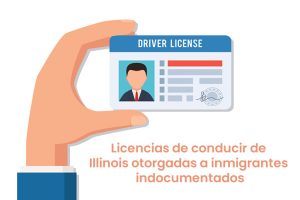Becoming a U.S. citizen is one of the most significant milestones in an immigrant’s journey. It’s not just a legal status—it’s a lifelong commitment to the principles, responsibilities, and opportunities that define the United States. And now, the U.S. Citizenship and Immigration Services (USCIS) is signaling a change that could make the path to citizenship more difficult than before.
On July 25, USCIS Director Joseph Edlow announced that the current naturalization test may be “not very difficult” and too easy to pass by simple memorization. His vision is to ensure the process better reflects the spirit of the law—that citizenship should be earned through genuine understanding, not just rote learning.
What the Citizenship Test Involves?
The U.S. naturalization test has two main parts:
- Civics Test – covering American history, government, and democratic principles.
- English Proficiency Test – assessing the applicant’s ability to read, write, and speak in English.
Certain exemptions apply for long-term residents and seniors, but for most, these two steps are the final hurdle before taking the Oath of Allegiance.
Since 2008, the civics portion has included 100 standardized questions. Applicants are asked 10 of these at random and must answer at least 6 correctly to pass. While preparation materials with all answers are publicly available, critics argue this format makes the test too easy to pass without developing a deep understanding of American democracy.
Why the Test May Be Changing?
In 2018, the Trump administration sought to raise standards—expanding the pool to 128 questions and requiring 12 correct answers out of 20. However, in early 2021, the Biden administration reverted to the easier 2008 format, stating that the harder test might create “unnecessary barriers” to naturalization.
Director Edlow’s recent comments suggest USCIS now wants to bring back higher expectations, encouraging applicants to engage more deeply with the material and truly embrace the responsibilities of citizenship.
Why This Matters for You?
U.S. citizenship isn’t just a title—it’s the gateway to:
- Voting rights in local, state, and federal elections.
- Expanded job opportunities in public service and government.
- Protection from deportation and full legal rights under U.S. law.
- The ability to sponsor family members for immigration.
It’s also a promise—a pledge to uphold and contribute to the nation’s democratic values. Raising the test standards reinforces the idea that citizenship is a privilege to be earned, not simply a box to check.
Your Opportunity Is Now
If you’ve been thinking about becoming a U.S. citizen, now is the time to act. Policy changes could mean more challenging tests in the near future, making preparation more important than ever. By applying today, you can take the current test format and secure the full rights, responsibilities, and pride that come with citizenship.
Don’t wait. Start your citizenship journey today—apply for U.S. citizenship and take your place in the American story.



